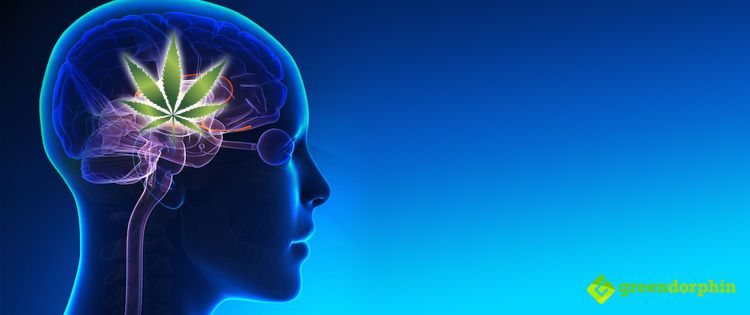Cannabidiol (CBD) is a chemical compound found in hemp and cannabis plants. It is not psychoactive, which means that people do not feel high when using it.
CBD is also known to have several medical benefits that can help relieve pain, inflammation, anxiety, lethargy and other conditions. When taking CBD, a person can feel relaxed without being intoxicated.
Possible Neurological Effects of CBD
CBD is known to have various medicinal properties. However, since the field of marijuana testing is still relatively young, more research is needed to study the properties and effects of cannabis drugs.
These are some of the possible medical conditions where CBD can be used effectively.
Neuroprotective effects
CBD can be useful in the treatment of neurological disorders because it protects neurons against degeneration. A study of Alzheimer’s disease has shown that CBD inhibits the development of Alzheimer’s symptoms.
Analgesic effects
CBD has been shown to help relieve pain. It can inhibit neuronal transmission without causing analgesic tolerance. For this reason, researchers suggest that CBD and other non-psychoactive components can be used as a basis for the treatment of chronic pain.
Anti-tumor effects
Studies have shown that very high doses of CBD have no toxic effect on humans and that they can be used to inhibit the growth of cancer cells due to their anti-tumor properties. It may even help in the treatment of leukemia and related diseases.
Effects against anxiety
CBD has been shown to reduce anxiety. Researches also suggest that it can be used in patients with various related mental diseases, including post-traumatic stress disorder (PTSD).
In a 2011 study, 24 patients with social anxiety disorder received a test. Patients received CBD or placebo 1.5 hours before the test. Anxiety, cognitive impairment and discomfort were found to decrease significantly in patients treated with CBD compared to those in the placebo group.

How Does CBD Work in the Brain
CBD creates effects via different molecular paths. Although CBD does not really bind to two of the cannabinoid receptors, CB1 and CB2, it works through different channels independently of the receptor. CBD enhances and inhibits the binding effect of certain protein-coupled receptors.
Therapeutic Effects of CBD on the Brain
Due to the neurological effects of CBD, it can help people with physical and psychological problems. Some researchers believe that CBD can act on brain signaling systems and provide benefits for neurological disorders.
Check out Matrix CBD Oil to find out more information on this subject and explore some of their CBD products.
Anxiety, stress and depression
Although THC can increase anxiety in some people, a study by Neurotherapeutics suggests that CBD can help relieve anxiety in people with certain anxiety disorders.
The neurological effects of CBD make it possible to be used as an adjunct to existing treatments and medications. If you are undergoing some treatments or on conventional medication, make sure you talk to your doctor before using CBD.
Epilepsy
A number of studies have shown that CBD can treat epilepsy and neuropsychiatric disorders. Because CBD has anti-convulsive properties, the risk of side effects in people with pre-existing epilepsy is low.
For this reason, more and more studies are being conducted that focus on the treatment of many epilepsy-related diseases, such as neuronal damage, neurodegeneration, and psychiatric disorders.

Sleep quality
Because CBD can help reduce anxiety, it can help relieve sleep disorders. You can increase your hours of sleep by relieving chronic pain and insomnia.
At low doses, CBD leads to alertness and reduces daytime sleepiness. However, large doses that are taken a few hours before bedtime have a balancing effect and often lead to a good night’s sleep.
The Huge CBD Potential
Although most studies focus on understanding THC, cannabidiol is showing great potential in terms of its medicinal use. It is important to learn about the different properties of cannabis and hemp so that people can use them not only to treat existing medical conditions but for their general well-being.
As more researches and studies coming out proving the healing benefits of cannabis more and more people can take advantage of this plant without fearing the stigma associated with cannabis.
- The Ultimate Guide to Delta 8 Disposable Vapes: What You Need to Know - March 8, 2024
- The Environmental Impact of CBD Production - August 28, 2023
- Cannabis In Thailand: A Green Revolution - August 15, 2023


